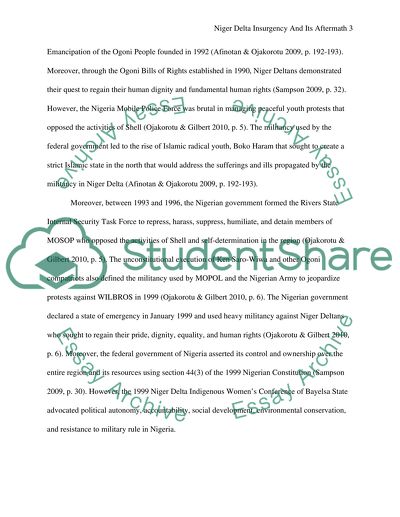Cite this document
(“Niger Delta insurgency and its aftermath Essay Example | Topics and Well Written Essays - 1500 words”, n.d.)
Retrieved from https://studentshare.org/social-science/1668738-niger-delta-insurgency-and-its-aftermath
Retrieved from https://studentshare.org/social-science/1668738-niger-delta-insurgency-and-its-aftermath
(Niger Delta Insurgency and Its Aftermath Essay Example | Topics and Well Written Essays - 1500 Words)
https://studentshare.org/social-science/1668738-niger-delta-insurgency-and-its-aftermath.
https://studentshare.org/social-science/1668738-niger-delta-insurgency-and-its-aftermath.
“Niger Delta Insurgency and Its Aftermath Essay Example | Topics and Well Written Essays - 1500 Words”, n.d. https://studentshare.org/social-science/1668738-niger-delta-insurgency-and-its-aftermath.


